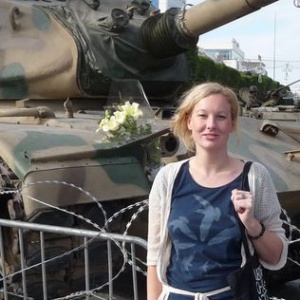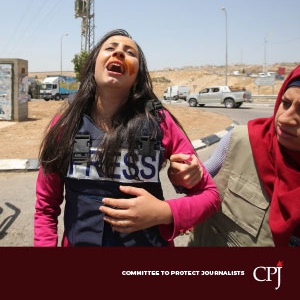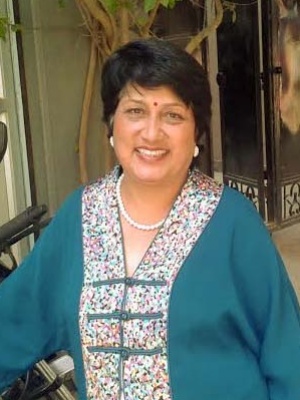Name: Ngunan Adamu
What do you do? Radio Producer/Presenter for BBC Radio Merseyside and a social entrepreneur
Why did this type of work interest you, and how did you get started?
I have always had a passion for working with disengaged and disadvantaged women and young people, using media, especially radio, to empower and educate the masses.
As a Nigerian scouser, my love for people and humanity came from my parents. In my father, a doctor working for the British Council, UN and WHO, I saw the passion that he put into his work, working on HIV/AIDS education for the African community on the stigma surrounding the virus and how to live a fulfilled life after diagnosis. However, it was his work with the mental health community internationally, that spurred me to want to work with communities but also to use journalism to highlight the issues facing them.
My mother, a strong woman raising three children in the UK on her own, demonstrated the power of giving, kindness and acceptance. Our home was a half-way house for those suffering from mental health and refugees/asylum seekers. This gave me the skills needed to be accepting of others.
As a graduate trainee journalist, my first job was as a health report for Voice newspaper, which was a local newspaper based in Toxteth, Liverpool, writing stories that affected people’s health. This experience gave me access to the growing diverse community of Liverpool and the different organisations that tackled health and integration.
Because of my passion for disengaged and disadvantaged communities, my reputation grew amongst my BBC colleagues as the ‘Outreach girl’ giving me access to brilliant projects such as BBC News School Report, BBC Radio 1Xtra UTakeover, BBC Hackney Academy, BBC Step Up and Connecting Classrooms with the British Council; but also covering stories such as Stop and Search police powers, Gun and Gang Violence, teenage mothers etc…
I graduated with a BA (hons) in Journalism from Liverpool John Moores University in 2003 and I managed to get into the BBC through work experience after several attempts of applying through the normal jobs portal route and I’ve been here ever since.
What part of this job do you personally find most satisfying? Most challenging?
I love covering personal stories of inspiration but also international stories that showcase the talent in Africa and the Caribbean, as my show is aimed at the African and Caribbean community.
The most challenging part of my job is the sensitive stories: in 2014 I was sent to Nigeria to cover the one year anniversary of the missing Chibok school girls as a foreign field producer, but was lucky to have reported on it for a few stations. It was a bitter sweet experience, it’s the type of story that journalists are waiting for but speaking to girls who had been at the school was heartbreaking.
However, on a day to day basis, the most challenging part is managing your time and understanding that you can’t do or cover everything.
What do you like and not like about working in this industry?
Every day is different, no one day is the same, in one week I interviewed Seal the singer, Gyptian the dancehall artist and Chuck D from Public Enemy, the following week I interviewed a woman who had been in a polyamorous relationship, the following week it was the floods in the Caribbean, so you can never predict your week.
There’s nothing that I don’t like about the industry apart from the amount of hours you have to give to make sure that you have quality content
What are your long-term goals?
My long term goal, which I am currently working on, is to have my own online radio station and radio academy working with women over the age of 25.
What special advice do you have for a student seeking to qualify for this position?
Be passionate, stand out and do your research. When emailing a fellow journalist or producer, research what stories they have covered or shows they have worked on. Know the industry inside and out: know which papers are affiliated to certain political groups, get involved in your school or university papers, radio or TV stations, apply for work experience or shadowing opportunities.
Once you have done all of the above, email an editor or journalist and ask to meet for a tea or coffee, just to find out what their jobs entails and what their vision is for the industry or their department as well as what skills and experience they are looking for, but don’t forget to sell yourself.
From now on, you are a walking talking CV!
Do you have any special words of warning or encouragement as a result of your experience?
Always be prepared, don’t take your position for granted, once you lose passion for the industry it’s time to move on. I’ve worked for the BBC for almost 11 years and I’ve worked for so many different departments, some unrelated to journalism, but I picked up so many new skills and experiences – always be prepared for any opportunity.
My word of warning would be to not give up or be disheartened when things are not moving as fast as you would have liked and never be too familiar, although you might be in a creative environment you must always remain professional
My strongest assets/skills, areas of knowledge, personality traits and values are….
My strongest assets are being able to approach anyone and making interviewees feel relaxed and at ease during my interview.
My areas of knowledge are Africa, specifically Nigeria, music, women, youth and politics. However I do love health and wellbeing and technology
I’m passionate about being Nigerian and Scouse; And I value people, I am a humanist; I believe that everyone should be able to live a fulfilled and positive life and my job as a journalist to give the listeners the information to be able to make informed decisions through the stories I cover.
Some of Ngunan Adamu’s work may be found here.

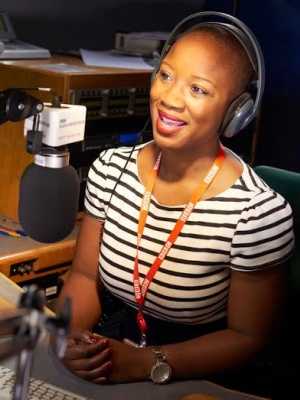
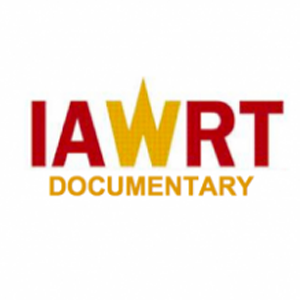
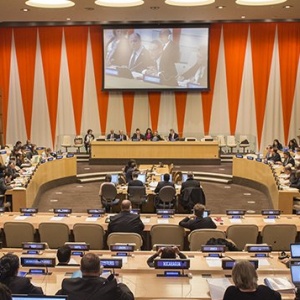
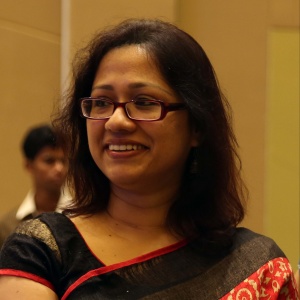
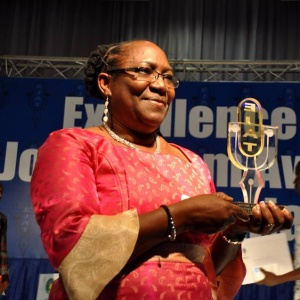
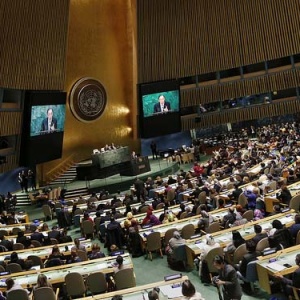
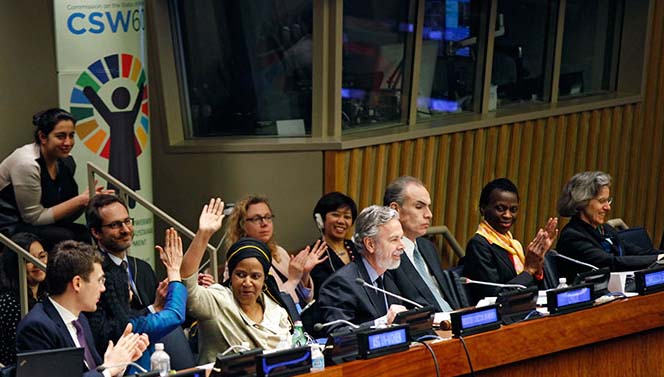 The CSW stressed the critical urgency of integrating gender perspectives in cohesive government strategies across all government policies and programs.
The CSW stressed the critical urgency of integrating gender perspectives in cohesive government strategies across all government policies and programs. 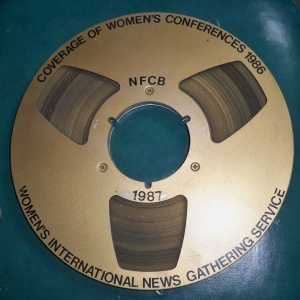
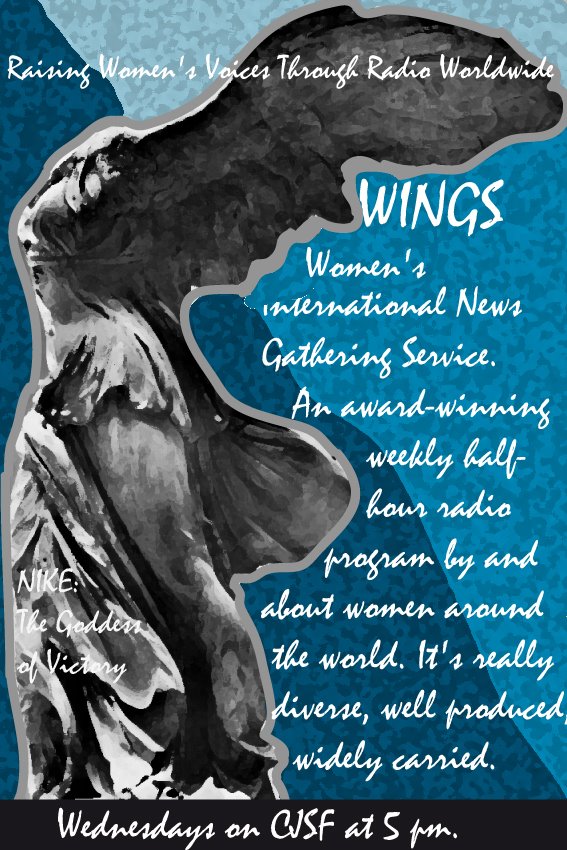 After the pilot was released, more stories which WINGS had solicited from international producers, kept arriving in the mail, so a second episode was produced by Frieda and Katherine Davenport. Just then, they received a grant from the US National Federation of Community Radio Broadcasters (NFCB) to travel to Vancouver, Canada for a conference of AMARC (the Montreal-based World Association of Community Radio Broadcasters). Through AMARC, WINGS made many contacts with producers and broadcasting stations around the world, and became active in promoting feminism inside the community radio movement.
After the pilot was released, more stories which WINGS had solicited from international producers, kept arriving in the mail, so a second episode was produced by Frieda and Katherine Davenport. Just then, they received a grant from the US National Federation of Community Radio Broadcasters (NFCB) to travel to Vancouver, Canada for a conference of AMARC (the Montreal-based World Association of Community Radio Broadcasters). Through AMARC, WINGS made many contacts with producers and broadcasting stations around the world, and became active in promoting feminism inside the community radio movement.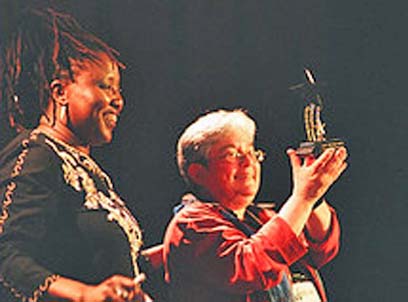 At age 69, Frieda is looking at the possibility of retiring from WINGS in the future, and wondering if other producers might like to take it over. She notes that women’s participation in the media has increased and she is proud that WINGS has played a role in that. “Working with women producers around the world and paying them is one of the best things we do; a lot of producers have gotten their first pay in radio from WINGS”.
At age 69, Frieda is looking at the possibility of retiring from WINGS in the future, and wondering if other producers might like to take it over. She notes that women’s participation in the media has increased and she is proud that WINGS has played a role in that. “Working with women producers around the world and paying them is one of the best things we do; a lot of producers have gotten their first pay in radio from WINGS”.